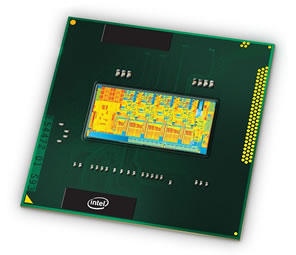Intel is investing heavily in its Ultrabook concept. The chip giant is paying first-tier notebook vendors to develop Ultrabooks, according to sources from downstream notebook players cited by DigiTimes.
Most notebook vendors are taking a conservative attitude toward Intel's Ultrabook concept after the failure of Intel's Consumer Ultra Low Voltage-based ultra-thin notebooks in 2009, not to mention the growing idea that tablets are cannibalizing notebook sales. As a result, Intel is hoping a big investment will be able to attract these vendors to launch Ultrabook products.
Intel unveiled design guidelines for the Ultrabook less than two months ago. The goal is to combine thinner and lighter form factors with tablet-style features such as touchscreens and near instant-on capabilities.
Ultrabooks are supposed to less than 20mm (0.8 inch) thick and cost less than $1,000. In the next 18 months, the company is hoping to eventually have really thin, really responsive systems down to truly mainstream price points of around $600.
The first wave of laptops adhering to the spec will arrive in time for the 2011 holiday shopping season, with Asus, one of the initial launch partners, releasing the UX21 Ultrabook. A second wave of Ultrabooks will appear in the first half of 2012, based on Intel's upcoming Ivy Bridge processors. The company hopes to reach its goal of mainstream prices at some point in 2013 with a new Core processor design, code-named Haswell, which will half the power consumption of Intel chips compared to today's laptops, enabling thinner designs and longer battery life. By that time, Intel says, as much as 40 percent of laptop shipments will be in this category.
